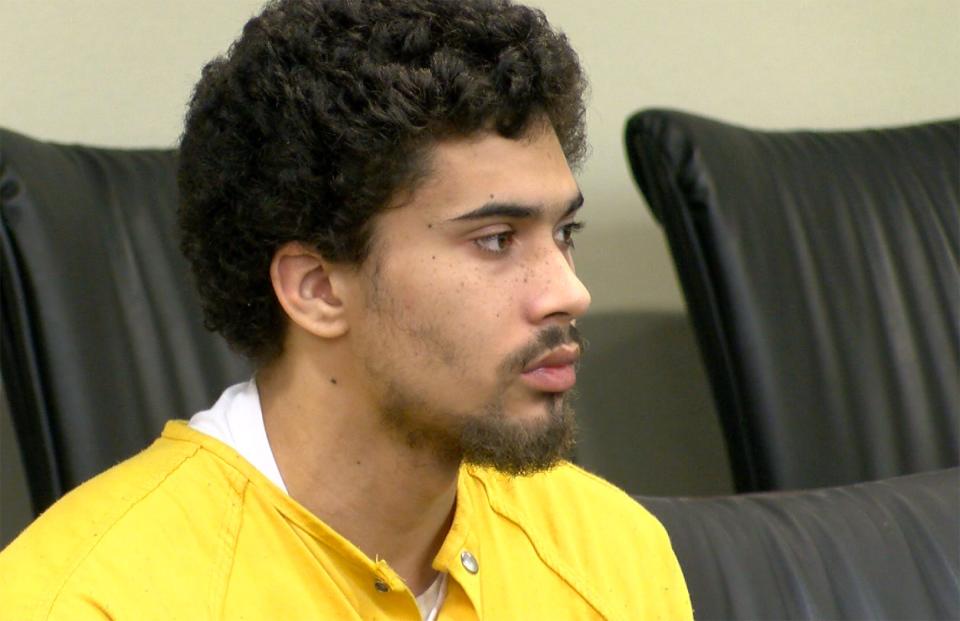NJ Supreme Court reinstates conviction for killer of 11-year-old Abbiegail Smith

TRENTON - The state Supreme Court Wednesday reversed an appellate court ruling that would have allowed the killer and rapist of an 11-year-old Keansburg girl to take back his guilty plea and go to trial.
The state's high court, in its unanimous decision reinstating the murder and rape convictions of Andreas Erazo, said detectives were not required to read Miranda rights to the defendant when he voluntarily went to the Keansburg police station in 2017 to give a witness statement about the disappearance of Abbiegail Smith, his young, downstairs neighbor.
The Supreme Court said Erazo, who was 19 at the time, was not in custody and not yet considered a suspect in Abbiegail's disappearance when he gave an initial statement to police.
Therefore, the court said he was not owed Miranda warnings, the recitation by police that informs suspects they have the right to remain silent and have an attorney present during questioning, the court said.
During his initial interview, Erazo claimed to know nothing about the girl's disappearance. But after that interview, police heard from a witness who saw Abbiegail enter Erazo's apartment, so they questioned him again, that time after administering the Miranda warnings.
Erazo agreed to waive his Miranda rights.
During the subsequent interrogation, detectives told Erazo they knew the girl was in his apartment and that her body was found in a futon cover that came from his home.

Erazo, now 24, eventually admitted stabbing the girl, but told police he thought she was an intruder in his apartment. He claimed to have blacked out and didn't know if he sexually assaulted the child, but his DNA later implicated him in her rape.
The Supreme Court ruled that Erazo's waiver of his Miranda rights before the second interview was knowing, intelligent and voluntary and, therefore, his confession should not be suppressed, as the appellate court had ruled when it said he could take back his guilty plea.
The high court noted Erazo was not restrained during the first interview, which was conducted in an unlocked room. Detectives brought him pizza and water in between the two interviews, the court said.
Erazo was given bathroom and cigarette breaks throughout the day, the Supreme Court said.
The high court said the appellate judges should have given deference to the trial judge, who found that "the detectives were not physically overbearing toward the defendant,'' and one of them even spoke to Erazo in a "quiet, conversational, almost paternalistic tone.''
The court noted that when detectives asked Erazo for a DNA sample, he refused and asked for a lawyer. With that, the detectives ended the questioning.
The Monmouth County Prosecutor's Office said in a statement that the Supreme Court decision vindicates their investigation.
"We are collectively elated over the opinion issued by the New Jersey Supreme Court (Wednesday) morning as it unequivocally validates the stance the Prosecutor's Office has held from the very onset of this case: that this investigation was conducted rigorously, dutifully and in full accordance with established law,'' the statement said.
"This was a uniquely heinous crime, and we are likewise collectively pleased that the family of Abbiegail "Abbie'' Smith can rest assured that the person responsible for cutting her life so brutally and tragically short will now continue serving his lengthy prison term,'' the statement said.
The state Public Defender's Office, which represents Erazo, did not respond to a request for comment.
Abbiegail went missing from her apartment in the Hancock Arms complex in Keansburg on July 12, 2017. Her body was discovered the next day, wrapped in a futon cover, on a rooftop outside Erazo's bedroom window. She had been stabbed to death and raped. Most of her clothing had been removed, and her hands and feet were bound with computer cords.
In his confession, Erazo matter-of-factly described binding Abbiegail's hands with a power cord from a computer and tying the cord around her hands "like I was tying a shoe.''
With his trial looming, Erazo pleaded guilty in February 2019 to the child's murder and rape in a deal that took life in prison without the possibility of release on parole off the table.
Superior Court Judge David F. Bauman sentenced Erazo in May 2019 to life in prison with the chance to be considered for release on parole after serving 63 years and nine months. He also imposed a 50-year sentence, to run concurrently to the term for murder, for the child's rape.
"You will become eligible for parole when you're over 80 years old,'' Bauman told the then 21-year-old defendant.
Erazo, in addition to challenging the admissibility of his confession in his appeal, also claimed his sentence is excessive.
Because the appellate panel ruled Erazo could take back his guilty plea and go to trial, it did not consider his challenge of the length of his sentence.
The Supreme Court remanded the case back to the appellate division to rule on that issue.
Kathleen Hopkins, a reporter in New Jersey since 1985, covers crime, court cases, legal issues and just about every major murder trial to hit Monmouth and Ocean counties. Contact her at khopkins@app.com
This article originally appeared on Asbury Park Press: Supreme Court decisions today: Andreas Erazo conviction reinstated


